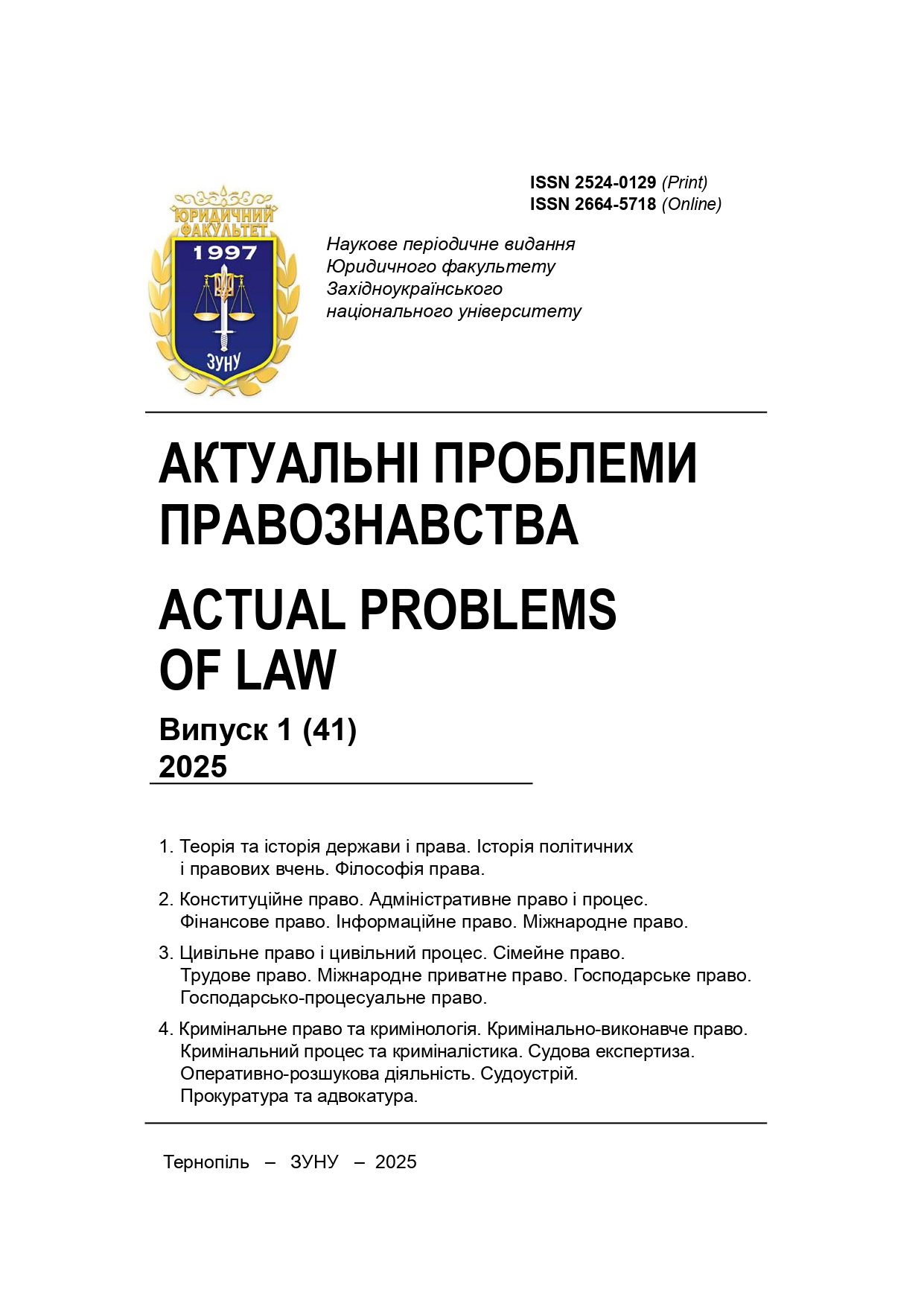The constitutional right to health and access to medicines
DOI:
https://doi.org/10.35774/app2025.01.253Keywords:
constitutional rights, right to health, access to medicines, human rightsAbstract
This article concerns the constitutional aspects of the right to health, specifically focusing on access to essential medicines and relying on international legal instruments, national constitutions, and judicial practice from countries such as South Africa, Brazil, Colombia, and Ukraine. The article considers how courts and governments are interpreting and enforcing this right. The analysis also considers the interaction between constitutional guarantees and international intellectual property frameworks, particularly the TRIPS Agreement and its flexibilities. In light of global health emergencies such as the COVID-19 pandemic and the war in Ukraine, the paper argues for a rights-based, resilient, and equitable approach to ensuring access to medicines as a constitutional obligation. A major challenge in realising the constitutional right to medicines is the tension between intellectual property (IP) protection under international law – particularly the TRIPS Agreement – and the obligation to ensure access to essential medicines.
The TRIPS Agreement (Trade-Related Aspects of Intellectual Property Rights), administered by the WTO, mandates minimum standards of patent protection, including for pharmaceutical products. However, Article 8 and Article 31 of TRIPS, along with the Doha Declaration on TRIPS and Public Health (2001), affirm that IP protection should not prevent member states from protecting public health and promoting access to medicines Courts have often emphasised that commercial interests, including those of pharmaceutical companies, cannot override basic human rights, particularly in emergencies. This perspective aligns with the doctrine of proportionality, commonly applied in constitutional law to assess the legitimacy of state actions that restrict or prioritise certain rights.
Many constitutions provide a legal framework through which these flexibilities – such as compulsory licensing, parallel importation, and government use – can be operationalized. Constitutional courts have, in some cases, invoked these international provisions to justify limitations on patent rights in favor of public health imperatives.
Downloads
References
Universal Declaration of Human Rights (1948), Article 25. Retrieved from https://www.un.org/en/about-us/universal-declaration-of-human-rights [in English]
International Covenant on Economic, Social and Cultural Rights (1966), Article 12. Retrieved from https://www.ohchr.org/en/instruments-mechanisms/instruments/international-covenant-economic-social-and-cultural-rights [in English]
WHO Global Health and Constitution Database. Retrieved from https://www.who.int/data/gho/data/themes/topics/topic-details/GHO/constitutional-provisions-for-health [in English]
Constitution of the Republic of South Africa, Article 27. Retrieved from https://www.justice.gov.za/legislation/constitution/SAConstitution-web-eng.pdf [in English]
Constitution of the Federative Republic of Brazil, Article 196. Retrieved fromhttps://www.constituteproject.org/constitution/Brazil_2017.pdf [in English]
Constitution of Ukraine, Article 49. Retrieved from https://zakon.rada.gov.ua/laws/show/254к/96-вр#Text [in English]
UN CESCR General Comment No. 14 (on the right to health). Retrieved from https://digitallibrary.un.org/record/425041 [in English]
Minister of Health v. Treatment Action Campaign, South Africa (2002). Retrieved from https://www.concourt.org.za/index.php/judgement/25-minister-of-health-v-treatment-action-campaign [in English]
Vieira, F. S. (2009). Right to Health and the Judiciary in Brazil. Retrieved from https://www.jstor.org/stable/25653101 [in English]
Colombian Constitutional Court Decision T-760/08. Retrieved from https://www.dejusticia.org/en/book/t-760-08-court-decision-health-reform-in-colombia/ [in English]
TRIPS Agreement and Doha Declaration on Public Health (WTO). Retrieved from https://www.wto.org/english/tratop_e/trips_e/pharmpatent_e.htm [in English]
Ukraine’s TRIPS Article 73 Notification to WTO (2022). Retrieved from https://docs.wto.org/dol2fe/Pages/SS/directdoc.aspx?filename=q:/IP/IPN/UKR298.pdf [in English]
Charter of Fundamental Rights of the EU, Article 35. Retrieved from https://eur-lex.europa.eu/legal-content/EN/TXT/?uri=CELEX%3A12012P%2FTXT [in English]
ECtHR – Sentges v. Netherlands; Pentiacova v. Moldova. Retrieved from https://hudoc.echr.coe.int/eng#{%22itemid%22:[%22001-69797%22]} [in English]





